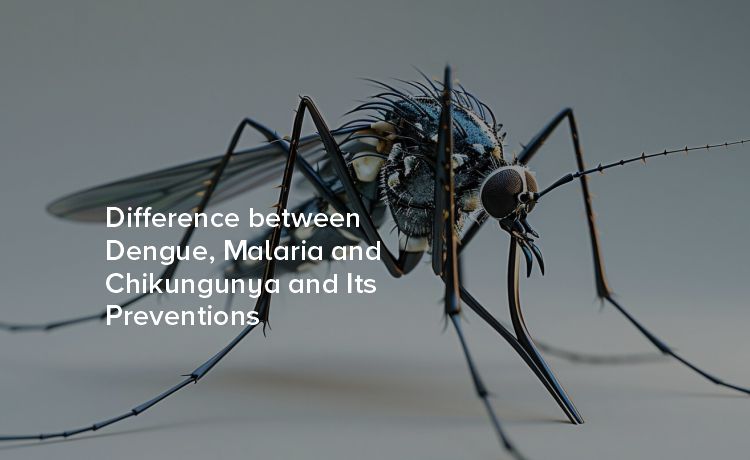
In recent years, the threat posed by vector-borne diseases like Dengue, Malaria, and Chikungunya has escalated globally, especially in tropical and subtropical regions. These diseases primarily spread through the bites of infected mosquitoes and can lead to severe health complications, sometimes even fatal. While they share some common symptoms, understanding the differences between these illnesses is crucial for effective prevention and treatment.
Dengue fever is caused by the dengue virus, transmitted through the bite of mosquitoes of the species Aedes aegypti. This illness is characterized by high fever, severe headache, pain behind the eyes, joint and muscle pain, rash, and mild bleeding (e.g., nose or gums bleed). Dengue symptoms typically appear 4-10 days after being bitten by an infected mosquito and can range from mild to severe. Severe cases can evolve into Dengue Hemorrhagic Fever (DHF) or Dengue Shock Syndrome (DSS), which can be life-threatening.
Eliminate Mosquito Breeding Sites: Remove standing water in buckets, barrels, pots, and saucers under potted plants to prevent mosquito breeding.
Use Mosquito Repellents: Apply mosquito repellent creams or sprays that contain DEET, Picaridin, or oil of lemon eucalyptus on exposed skin.
Wear Protective Clothing: When in mosquito-prone areas, wear long sleeves, pants, and socks.
Install Screens on Windows and Doors: To prevent mosquitoes from entering your home.
Malaria is caused by Plasmodium parasites, transmitted to humans through the bites of infected Anopheles mosquitoes. Symptoms include fever, headache, chills, and vomiting, appearing 10-15 days following the bite. If not treated promptly with the right medications, Malaria can become severe and lead to death. The presence of malaria is highly dependent on climatic conditions such as humidity, temperature, and rainfall, and it is more common in rural or underdeveloped areas.
Sleep Under Insecticide-Treated Mosquito Nets (ITNs): Especially effective in preventing malaria.
Indoor Residual Spraying (IRS): Spraying inside the home with insecticides can also reduce malaria transmission significantly.
Take Antimalarial Drugs: For travelers to high-risk areas, taking prophylactic antimalarial medication can prevent the disease.
Avoid Outdoor Activity at Peak Times: Mosquitoes that transmit malaria are most active between dusk and dawn.
Chikungunya virus is transmitted through the bites of Aedes mosquitoes, the same species that spreads dengue. Its symptoms resemble those of dengue and include an abrupt onset of fever accompanied by joint pain, which can be severe and debilitating. Other symptoms may include headache, muscle pain, joint swelling, or rash. While the mortality rate of Chikungunya is lower than that of Dengue and Malaria, the joint pain it causes can last for months or even years.
Use Air Conditioning or Mosquito Nets: To avoid mosquito bites, especially during the day when Aedes mosquitoes are most active.
Remove Water-Holding Containers: Just like with dengue, eliminate standing water around homes.
Wear Full-Length Clothing: To minimize skin exposure to mosquitoes.
Community Efforts: Community-wide efforts to control mosquito populations can significantly reduce the risk of Chikungunya.
While Dengue, Malaria, and Chikungunya may present similar symptoms, such as fever and joint pain, they are caused by different pathogens and require specific treatments. Prevention plays a critical role in combating these diseases. By taking proactive measures to avoid mosquito bites and eliminate breeding grounds, communities and individuals can significantly reduce the incidence of these illnesses. Always consult healthcare professionals if you suspect you have been infected, and remember, the best cure is prevention. Citizens Specialty Hospital has the team of best general physicians in Hyderabad. Book an appointment with our experts now.